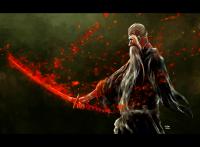Randomness vs. Constants
#1
18 October 2012 - 06:29 AM
In the example of Final Fantasy Tactics, there are a large amount of attacks that rely on a percentage chance. Normal physical attacks, normal magic attacks, many things. The accuracy of a spell typically correlates with its effectiveness, example being a spell that inflicts a status ailment would have a lower chance to hit because the ability to instantly turn an enemy to stone can have much more of an impact on the battle in a single turn then just damaging an enemy. The intent and effect of this design choice is something I think we should examine in detail.
The presence of the RNG or random factors in games is a simple, effective way to greatly enhance the difficulty of the game. (This is the commonly referred to "fake" difficulty because those factors are out of the players control). The alternative would be where the game is developed in such a way that the burden of success or failure rests solely on the player. While the latter situation may seem like something that is more enjoyable, is it ultimately more fulfilling? Does it create a situation where the player can be challenged even after they have mastered the mechanics of the game? I argue that the more constants that a game imposes the less challenging the game becomes and in turn the game is much easier to master. Random factors are needed in order to put a check on those constants.
A hack like Final Fantasy Tactics 1.3 creates an ideal environment where especially in the later stages there is a large difficulty even with the best items. How does it do this? Could it do this if all of the attacks never missed, did the same damage every strike, and if the enemy units were extremely predictable? Even with a lesser setup the situation I just proposed would be very manageable. I cannot accept that this would be "real" difficulty. An ideal difficulty for me is one that even if I mastered the mechanics the game can still throw me curves therefore creating a difficulty that can be overwhelming at first but once you accept and learn that can become extremely rewarding.
I think that the balance created by adding a random factor to the game is absolutely needed to create a balanced difficulty that can be rewarding and in turn replayable. Using random battles vs. battles you can avoid as an example, the proponents of a system like Chrono Trigger or Chrono Cross where the enemies are visible and encounters avoidable feel that this is a system that is more enjoyable and one that also puts it on the player to avoid battles themselves, therefore presenting difficulty. I actually agree with this assessment however in my opinion it is a limited difficulty where the player will eventually learn the enemy patterns and be able to easily avoid them. In this way you can circumvent the need to have many supplies which works against I would assume the intended design of you needing to stock up on supplies for the battles ahead. A random battle system forces the player to be prepared for anything. I remember playing Dragon Warrior IV and going through a cave and only being able to get halfway through before running out of herbs because I wasn't prepared enough. When I did prepare fully and went through I tackled that obstacle. If I could avoid battles, why even get the herbs?
The extreme of a random system would be something like Unlimited Saga, which not many find fun but it is quite difficult. In my opinion this isn't the optimum setup because its core is not a great design. This really brings me back to the beginning because its why we are all here. We have the ability to take games that we truly love and found fun and add difficulty to them. Putting the checks and balances on systems that in theory were interesting and fun but because of constants with no balance are easy to master. I feel that only with a true balance of randomness vs constants that there will be a difficulty that can be appreciated through many playthroughs in different ways while being able to experience the full extent of what the game was trying to convey. The ability to take advantage of any spell or piece of equipment and not just rely on one, the ability to have multiple player combinations and party setups. Remaking things in a non-mainstream, amazing way.
Click here to view the article
#2
18 October 2012 - 12:25 PM
If there is no such thing as evasion or accuracy, the only thing the designer has managed to do is homogenize more aspects. By having a sword that deals 2 damage but only hits 50% of the time, you create a choice for the player to pick either that or the one that deals 1 damage 100% of the time. It's a great way to provide balance while having multiple weapon types (as opposed to everything is 100%, always).
(Vanilla) FFT's status effects are actually a very poor example of RNG, mostly due to how defenseless the enemies typically were. Why bother Petrifying something 33% of the time when you can draw out OHKO them 100% of the time? There needs to be a breakeven on the random events to provide an effective risk-reward scenario and the majority of the time it just wasn't there.
There are some RNG aspects about FFT that are very good -- shield/class evasion and unit facing direction, for example, turned orientation into a meaningful decision, and rewarded the higher mobility classes to getting a backstab versus only those able to avoid class/front evasion. This mechanic also slightly penalized ganging up on a unit, because only the first one could attack from behind. This system, while RNG reliant, is far superior over one where evasion is 360 and all that matters is the location of the unit as opposed to its location and its orientation.
Using randomness on enemy attack patterns is, imo, very much of a good thing. Otherwise they'd be perfectly solvable and require only proper setup and execution to beat. Randomness out of the enemy causes the player to be both more responsive and flexible. Randomness also enables "masters" to be in a losing position that they would otherwise avoid. But it doesn't necessarily make the game more difficult -- imagine if Chaos in FF1 would do nothing but cast NUKE every single round. It's constant, and highly effective at kicking your ass.
#3
18 October 2012 - 02:16 PM
To use the FFT 1.3 example, say you have a 50% chance to land petrify in some 5v5 battle. If it succeeds, you've turned it into a 5v4 battle using only one turn of one character, thus ensuring the rest of the battle will be significantly easier. If you miss, you waste your turn, and still have a full-fledged 5v5 battle to continue, while now being down a turn. If petrify had no variance, and instead had a predictable effect of removing half a target's max HP, then using Petrify would guarantee a situation between those two extremes.
Randomness vs. consistency is something I've thought a lot about in Soul Shepherd's mechanics design, so I will justify those design decisions here:
Having minimal randomness is great for creating boss battles, or any 1 time fight. With very little randomness, you can make a fight so hard that it's just barely possible if the player chooses all the correct options. If you add randomness to this, the player may choose all the right options and still lose, but they also may try right options and still win. This allows the player to repeatedly fight the boss, without improving their strategy, and still have a chance at winning. I would say the less random option here is both better design and more difficult.
On the other hand, for repeat challenges (like normal battles) you probably don't want every fight to be some epic duel that requires a highly specified set of actions from the player. Once the player learns what strategy to use, all they have to do is repeat that strategy each time to win. This will be hard the first time, but subsequent fights will be unchallenging and dull. This is where lots of RNG is fun. Randomness lets you have normal enemy groups be easier than boss fights *on average*, but also randomly extremely difficult. Keeps situations variable, keeps the player on their toes and living in fear. In Soul Shepherd I really take this to the extreme, by having, in some cases, upwards of 100 possible enemy formations in a single area, having enemies randomly show up in Hyper status (massive stat boosts), and having variable preparations on the player's end as well (how full their Impulse meters (think limit breaks) are). Plus things like status ailments and OHKOs. So, randomness is great for making repeat challenges stay interesting longer.
#4
18 October 2012 - 02:19 PM
#5
18 October 2012 - 06:41 PM
Reaction-based stuff should be more prevalent in RPG and Action games.
#6
20 October 2012 - 12:14 PM
Randomness vs Constant; I agree with philsov that it adds choice, and forces you to weigh your options.
When I used to play World of Warcraft, all I did was PvP. When I would gear a new character for it, I would always be presented with a choice: I could get the proc trinket or the on use trinket.
Proc Trinket - While it has less of an effect, it gives you a more even healing/damage output because it could potentially proc more than the other.
On Use Trinket - Higher effect, can use it when you need that extra burst of damage, but has a longer cooldown than the former.
As you can see there's a very clear choice to be made here, and it's one way that balance is provided.
#7
20 October 2012 - 12:58 PM
Time usually involve huge amount of grinding. If you need 500 hours to achieve a goal, some people say it's hard.
Reaction is usually quickly reaction to something with the most precision possible. FPSs and RTSs revolve around that. Being quicker than your opponent will usually leave you victorious. Muscle memory is usually what helps you the most here.
Knowledge is pretty vast and is used in about every game genre. It helps you counter RNG by knowing what ability/item/gun/whatever to use and when. For example, a game like FF9. Knowing what equipment to wear and which abilities to use will determine if you can kill that boss or not. For 1.3 it's a bit different, because even with the knowledge you still have RNG to deal with. However it still helps.
Generally, the better at a game you are the more knowledge of said game you have.
Personally I don't think 1.3 is difficult. Same with Dark Souls. Sure, they're harder than most games out there but there isn't really competition.
The reason I think they're not hard is because the execution required to win isn't that difficult. Learning, exploring, experimenting, etc... is the hard part(coupled sometimes with RNG). Unfortunately you can negate most of these parts by simply watching a video of said games or reading a strategy that work for X boss and Z map.
For me, difficulty is in reaction based games. Games like FPSs, some RPGs, RTSs and probably some other genres I'm forgetting. Having the wit to actually adjust to a human opponent using his own specific pattern is the hardest part of gaming. To some extent, not everybody plays the same or move the same way in a FPS, nobody use the same abilities in an RPG, nobody use the same build/unit formation in a RTS. Even then you still have to account human error which happens more often than not and you have there the definition of ''skill'' in my book.
I hate RNG. I hate it with passion. Even RNG that has very little impact can drive me mad. In a game like FFT it's not that bad because all the game is based around it. RNG works with and against you, that's fine. Still, RNG can result in losses. Not because you made mistake, but because you got bad luck. Being punished even if you played good is frustrating to me, especially when you play competitively.
#8
21 October 2012 - 09:03 AM
Without RNG, there is no risk/reward analysis beyond your first playthrough. Once you've learned and mastered the proper steps, you will succeed. There are quite a few games out there that were very successful without RNG, from a maze in a children's activity book to Mike Tyson's Punch Out! to those Sierra games with 37 floppy disks, IWTBTG, Contra, etc. There's still some fun factor to playing some of these games due to their difficulty (contra/punch out) but generally, these games can only be enjoyed when you've forgotten the patterns.
Chess/checkers/etc are notable exceptions in that the risk/reward assessment comes directly from your opponent's unpredictable human mind. The exact opposite is true of Poker, where the cards are (essentially) RNG based but you rely on your opponent's predictability and your own ability to assess risk to succeed.
FFT 1.3 has a wonderful balance. The RNG is featured here beautifully. Yes, you can chose to try to stone an enemy with 33% chance of success, or you can cut its HP in half with an 85% chance of success. If you chose the all-or-nothing route, you'd better have a backup plan in case it fails. In this case, the RNG simulates the human intelligence you would face in a game of chess. But there's still plenty of actual structure to it. There's a generally accepted way to beat the engineer fight in the colliery, for example.
Combining both fosters replayability. You will struggle a lot less on your second playthrough but there's still nothing predictable about the game, so you can continue to experiment and learn and find better ways of reaching your next goal.
Without a human opponent, no one would play FFT (1.3 or otherwise) for hundreds of hours without RNG. RNG is literally your friend. It simulates your human opponent.
#10
21 October 2012 - 02:53 PM
 FlowerBoy, on 21 October 2012 - 11:14 AM, said:
FlowerBoy, on 21 October 2012 - 11:14 AM, said:
ilu
While the RNG can occasionally be fickle, more often than not it's a very good thing. I can't imagine things like the Charge bonus or thief-type (high evasion, low HP, increased damage from physicals) in an RNG-less game, or the awesomeness that is markmanship or magical attacks.
#11
22 October 2012 - 06:48 AM
adversary is going to do and having to assume which action has more probability to be taken.
#12
22 October 2012 - 03:04 PM
Quote
I agree with the 3 kinds, except for the last one I use "decision making" or "strategy" rather than knowledge. It is often almost a matter of just having the knowledge, but you also have to be able to put that knowledge to use appropriately. This is my favorite kind of difficulty.
#13
23 October 2012 - 11:37 AM
(Is my hair ok? Oh no, he's gonna think I'm some weirdo! Be cool. Don't do anything. These jeans make my ass look big. Stop thinking. Say something!)
uh...h-h-hello Mr. Philsov, sir.
#14
24 October 2012 - 02:54 AM
 Archael, on 18 October 2012 - 06:41 PM, said:
Archael, on 18 October 2012 - 06:41 PM, said:
Reaction-based stuff should be more prevalent in RPG and Action games.
This actually made me think of something I don't see often in games. Manipulable RNG. For those who are wondering what I'm talking about I mean an RNG that doesn't function off of pure randomness. For example in Dragon warrior one moving on the correct frames will guarantee no random encounters and attacking on particular frames will result in critical hits. But this is never made obvious to the player and it is VERY difficult to manipulate on console. So honestly I wonder what it would be like to see a game where the RNG was manipulable but there was a degree of difficulty to doing so thus rewarding hard work but not forcing them to do actually have to manipulate it to an extreme.
These kinds of things can actually be seen in tons of TAS and speedruns of various games. So why not have an rpg based around the idea that you can manipulate its RNG to a degree. Though I'm aware it would be pretty insane to balance something like that and still have it feel rewarding.
 philsov, on 21 October 2012 - 02:53 PM, said:
philsov, on 21 October 2012 - 02:53 PM, said:
Though I will agree 100% that the risk reward system of RNG makes some games only that much more fun.
On that note I still wanna see WizDaddy get frogged....
But sadly the RNG has not be nice to Ser Frog Dash and Frog Knight BP.
#15
06 November 2012 - 06:51 PM
People here are modifying an existing game not creating a game from scratch.
If you could compile your own code you could add all the things that could really make FFT or any game harder.
Intelligent dynamic AI that doesn't do stupid things at stupid times.
True difficulty is impossible without modern level processing power.
There is only so much you can do with a emulated 1995-94 mips processor.
Imagine FFT rebuild on Unity,dotNET/Opentk, or LOVE with DirectX9 level effects.
With DirectX and PhysX engine you could add more intelligent AI with smarter counter-player strategies.
Imagine FFT with formations. ALOT harder.
Now that's a game!
Increase the maximum opponent count to 50 or 60. With AI programmed formations it will be like a chess match with the complexity.
Most people here don't have months to compile full length win64/win32 port of FFT.
But really if you want to make a game challenging without making it tedious and annoying just give the AI the same broken overpowered setups and equips as the player. Complete with AI using the same execution pattern as the player(impossible without modern level performance).
There is no advantage if both the player and the AI have the same tools/strats. None.
The game would be extremely hard but will still be fun.
#16
06 November 2012 - 07:10 PM
 RedPhase, on 06 November 2012 - 06:51 PM, said:
RedPhase, on 06 November 2012 - 06:51 PM, said:
People here are modifying an existing game not creating a game from scratch.
If you could compile your own code you could add all the things that could really make FFT or any game harder.
Intelligent dynamic AI that doesn't do stupid things at stupid times.
True difficulty is impossible without modern level processing power.
There is only so much you can do with a emulated 1995-94 mips processor.
This guy gets it.
#17
06 November 2012 - 07:13 PM
 RedPhase, on 06 November 2012 - 06:51 PM, said:
RedPhase, on 06 November 2012 - 06:51 PM, said:
People here are modifying an existing game not creating a game from scratch.
If you could compile your own code you could add all the things that could really make FFT or any game harder.
Intelligent dynamic AI that doesn't do stupid things at stupid times.
True difficulty is impossible without modern level processing power.
There is only so much you can do with a emulated 1995-94 mips processor.
Doing it right.
#18
10 November 2012 - 09:45 AM
I think there is "good randomness" and "bad randomness".
If the randomness itself enhances replay value, such as random item drops, chest items, maps, etc.
There is also a more strategic randomness, better thought of as calculated risk.
Chrono cross is an example that jumps to mind since I was just recently playing it. You can theoretically do a bit more damage to an enemy at the cost of being less accurate. So instead of 10 damage with 95% chance to hit, it's 20 damage with a 55% chance to hit. But the player gets to choose how much randomness is truly there. This is a very important thing to distinguish.
I do agree in principle that nothing should be 100%, but non "calculated risk" type luck should be kept at a minimun IMO.
Using your dancing mad mod as an example, when I payed it last the giga dudes in the magitek factory had about a 100% chance to wipe your party out if they got to go first. If you got to go first, and you were ideally equipped and used proper strategy it was more like 50-75% chance to win the fight.
IMO, no way in hell should the RNG ever swing that capriciously.
#19
13 November 2012 - 06:09 AM
Going back to the Break thing, instead of it just having like a 35% chance of hitting some enemies are immune to petrify, some are highly resistant, some don't have any real resistance. And so on for other enemies and other effects. Different enemies counter different things. Then instead of you make all the right moves and still lose, it's a matter of finding and exploiting the weak point and having a diverse tool set so that you can consistently and reliably do so. If instead you/your party is/are one trick ponies, then have fun being hard countered by most of your opposition.
I also don't really support randomness in AI. If an enemy can cast say... Fire 3 and Flare, then why doesn't it just spam Flare on single targets and spam Fire 3 if it wants to attack multiple targets? Now imagine it also has Fire 2. Why would it even cast that? That's a waste of a turn. If that's too deterministic, then make abilities more meaningfully different so it's not so easy to figure out the best move.
Stuff like (small) random damage ranges, etc? I'm fine with that. But when that enemy AI is trying to decide how best to kill the party, if it's a difficult game it should be reasonably good at selecting the best action.
...This would also include not casting Fire 3 or Flare and instead casting Ice 3 if it casts a fire spell and sees it was nullified or absorbed.
#20
14 November 2012 - 08:54 PM
As long as the MP costs are proportioned to the effectiveness of the spell/attack then it doesn't matter if its broken or overpowered.
Like say Golem. You can balance Golem by cost = max MP. If your max MP is 100 then it takes 100MP to use.
Draw-out can be balanced by it passively draining MP(think MP poison) every turn compounded by regular MP costs.
Blade Grasp can be balanced by dancers(ignores BG),summons(ignores BG),throw(ignores BG) and calculators(calculations ignore blade grasp but can be evaded by normal M evasion).
Bring calculators back but make them have MP cost and are M-Ev evadable.
Mimes can still mime certain cheap attacks but those attacks require the mime to use MP
Liche(in-evadable demi 3) takes half your max MP to use.
Just a quick example:
Ice4 takes 100MP(slowest, 4x stronger than ice 1)
Ice3 takes 50MP (3x stronger than ice1)
ice2 takes 25MP (2x stronger than ice1)
ice1 takes 12MP(fastest)
All you have to do is tone down chakra's MP rez,ethers,etc. Generally make magic harder to replenish MP and drive up the MP cost of cheap,overly effective moves.
Then both the player and the AI have to choose to use magic more conservatively and strategically. Not just spam a broken
attack over and over again without thinking.
























